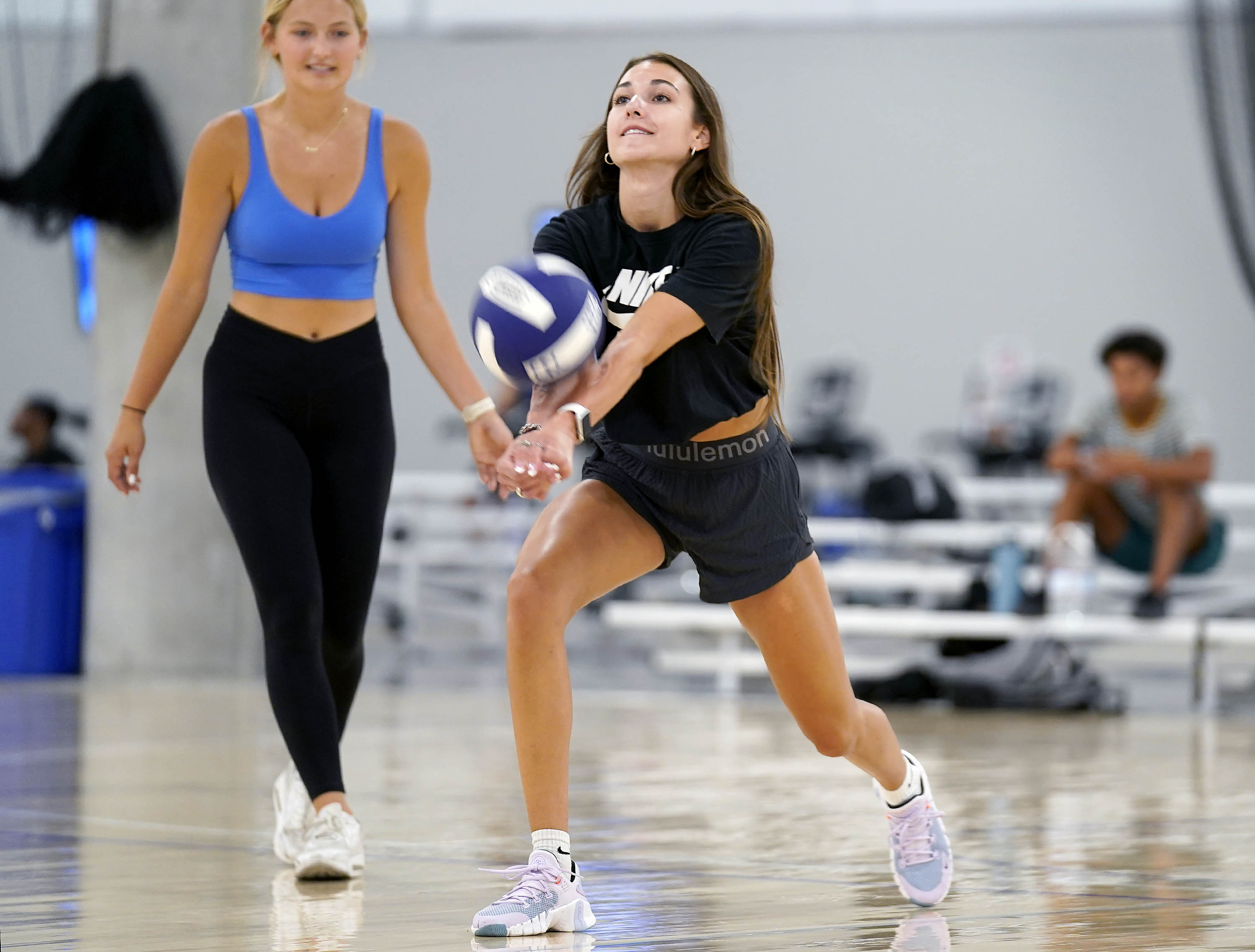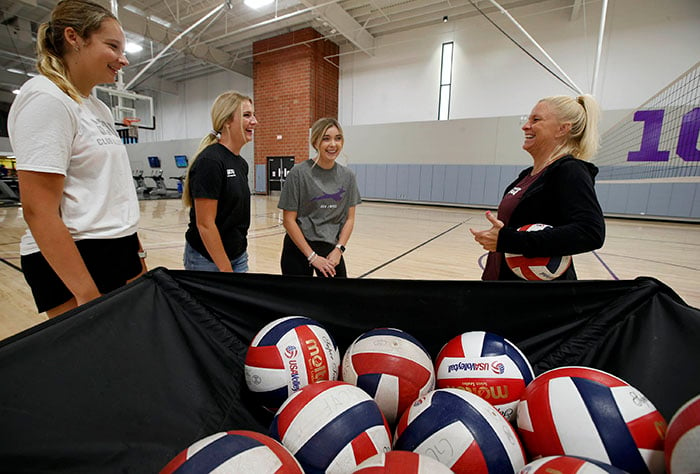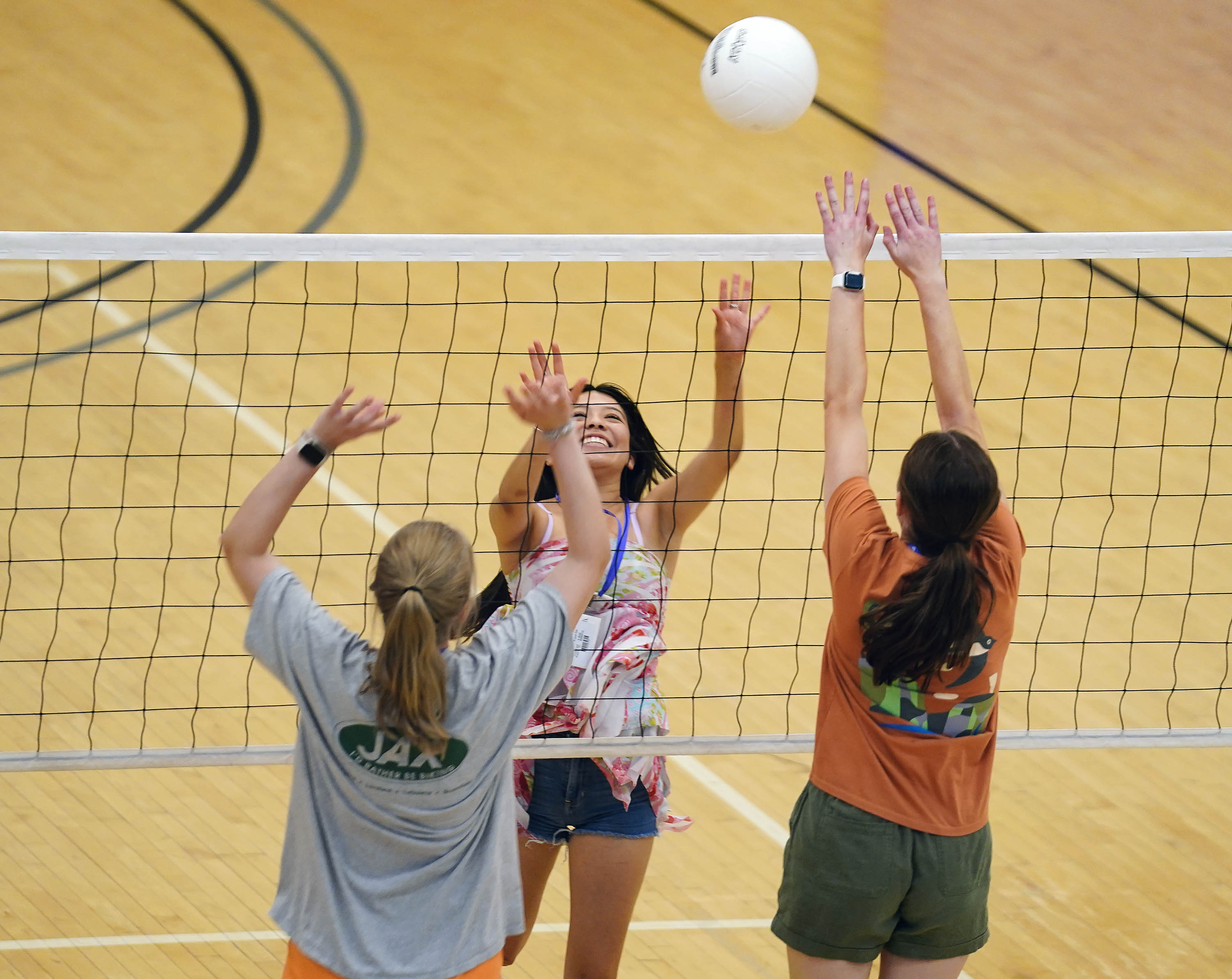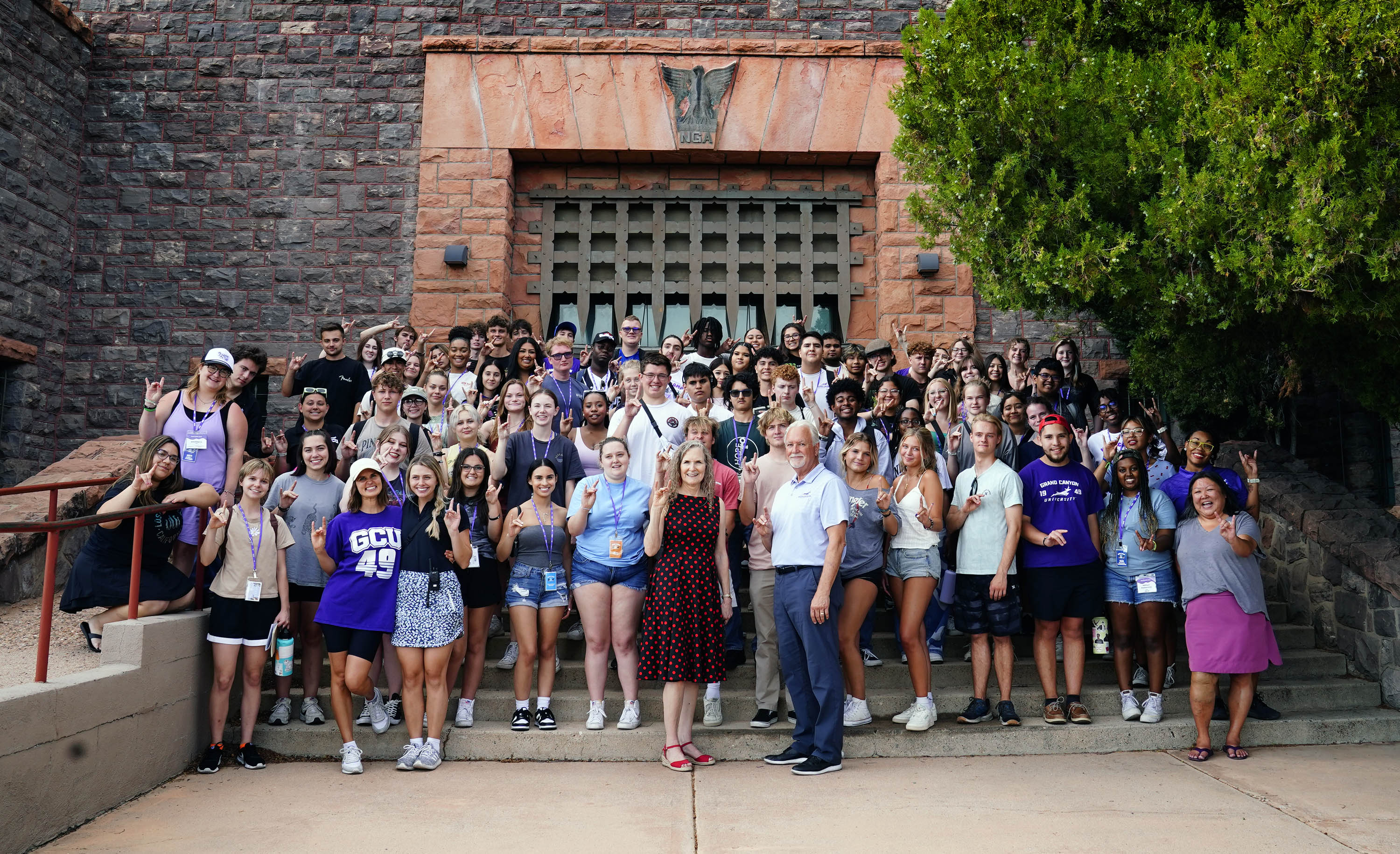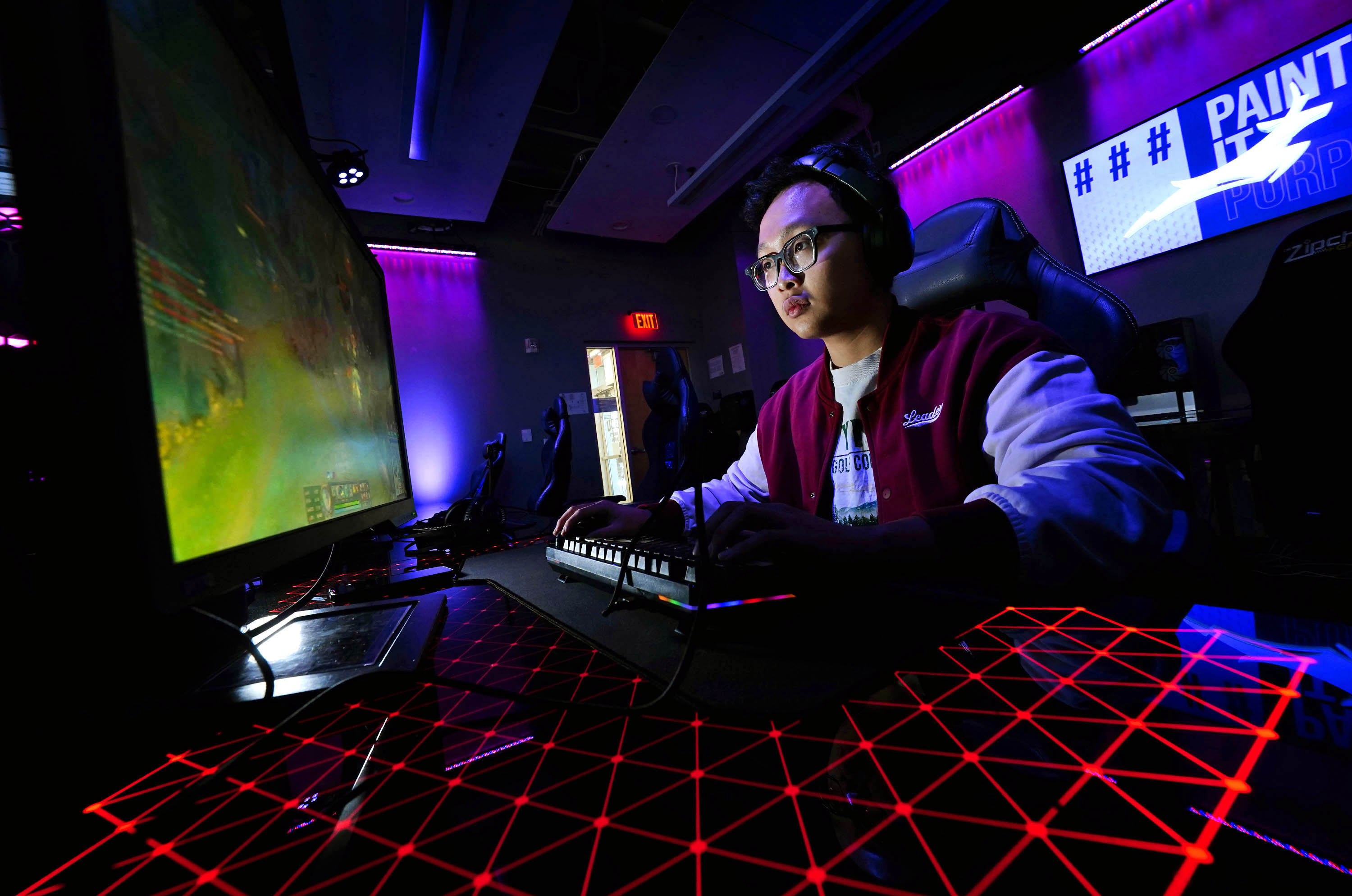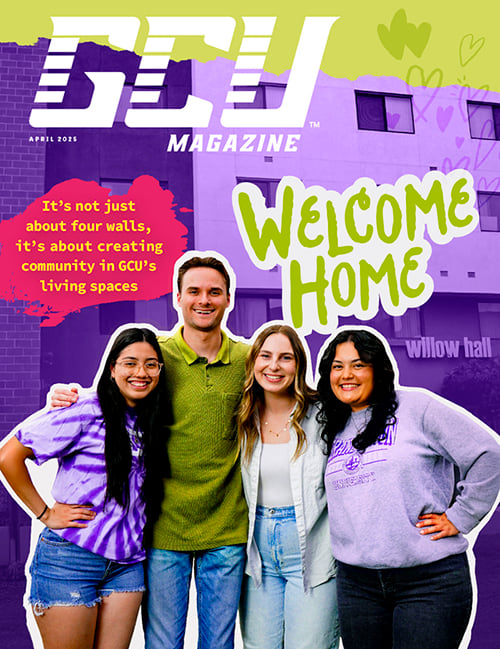
By Mike Kilen
GCU News Bureau
She had a dream.
She was on stage under a spotlight, and God was speaking to her.
One problem. It was difficult for people to understand her. Brooke Brown has cerebral palsy, and its muscle weakness and spasticity causes speech that is difficult for others to understand unless they practice listening to it.
Augmented communication devices she used in middle school to clarify her speech only made it harder.
"I was already being harassed by many of the other students, and having the device turned me into even more of what I call a circus sideshow," she told a group of College of Education students in a special education course at Grand Canyon University on Wednesday.
After transferring to Scottsdale Christian Academy, Brown said she found understanding teachers and patient students who allowed her to communicate and begin her dreams of writing. And after trying augmented communication again as a student at Arizona State University, Brown took off as a journalism major. She knew she needed to communicate.
"I still never saw myself becoming a speaker and teaching my own workshops or acting on stage with a device like I am now. But I did," the Ms. Wheelchair Arizona told students in Assistant Professor Dr. Lisa Bernier's class through an augmented speaking device.
Brown began speaking to groups and published her first book, "My Little Butterfly Girl," a fairytale inspired by her childhood dreams, struggles and faith.
That's when her dream in the spotlight came true. She was chosen to be a graduation speaker.
"Giving the graduation speech was one the most terrifying yet gratifying and humbling experiences of my life," Brown said.
She got a standing ovation.
"It's proof that if you trust Him, Jesus will use your greatest weakness for His glory," she said.
Today, Brown typically gives two speeches a month to school and church groups, will compete in the national Ms. Wheelchair pageant in August, leads storytelling workshops to teach people the power of telling their story and is at work on her fourth book, a memoir of dealing with physical and emotional pain. (See more about her work here).
"His power can be seen through our weakness. Therefore, my speech is my power and part of my ministry to help them in their struggles," she said. "The best way to build relationships, cultivate fulfilling opportunities and advocate for positive change in our communities is to share our stories with one another."

People often assume there is a correlation between one's physical limitations and their mental competencies, a perception that needs to change, she told students in an appearance that previews next week's Disability Awareness Week on campus.
That's her message to teachers in training who have children of various limitations in their classes: Always assume competence.
Even judges in the Ms. Wheelchair Arizona had trouble with their preconceived notions, she said. A judge wondered how a woman with cerebral palsy could fulfill a role that requires communication and win a national contest with a speech impairment.
It took her six tries before she won the title this year, convincing them that her voice, even if it was different, was the platform. They needed to hear that one should always assume competence.
"No one should avoid communication with someone because their body mechanics are unfamiliar," Brown said. "A typically abled person should strive to approach a person with a disability the same way they would any other. Get to know them by asking questions, seeking out common interests and listening to their experiences."
Don't be condescending or, worse, just blankly nod.
"It absolutely infuriates me when people pretend to understand me when clearly they don't," she said.
Just ask. Everyone has a story and can tell it if there are willing listeners.
"No matter how severe a student's disability might be, that doesn't mean you can't have high expectations for them," she said. "You never know what God is calling them to do."
Students asked several questions with translation help from Brown's cousin, Michaela Konzal. They wanted to know how to help students with disabilities succeed in classrooms. (Ask about their disability and how you can help, she said.) They asked about her positive experiences in the classroom. (Brown's fourth-grade teacher figured out her writing gift and encouraged her.)
They asked her why she wanted to be Ms. Wheelchair.
"I saw the platform after I competed for the first time, and they denied me because of my speech, I was like, 'I'm going to fight this.'"
Brown encouraged the students to embrace the awkward, get to know the students. Chill out. You won't hurt their feelings. The only way to hurt their feelings is if you don't try to find their gifts.
"Everyone wants to seen and known," said Bernier, who met Brown in camps for people with disabilities − the two often give presentations together. "They don't want to be over there when everyone is over here. Inclusion is they are part of the community, they are part of the discussions. So look for those gifts in your students."
Brown signed a copy of her book for Jodi Corrales, a sophomore elementary education major.
"This is a good way to open my eyes to someone's perspective I won't understand," Corrales said. "It's nice to understand what the child feels so I can offer up better resources."
Brown said afterward that assuming competence in students, no matter the limitations, is her main message – one that she lived out by turning a weakness to a strength.
"Everyone is made in God's image and has a purpose, and so mine is that everyone has the right to communicate."
Grand Canyon University senior writer Mike Kilen can be reached at mike.kilen@gcu.edu or at 602-639-6764.
****
Disability Awareness Week
Tabling on the Student Union Promenade is scheduled for 10 a.m. to noon, Monday through Wednesday, March 28-30. Each day is sponsored by a different GCU group with a banner to sign pledging support for inclusion of people with disabilities.
“It’s about inclusion," said College of Education Professor Dr. Rebekah Dyer, organizer of the awareness event. "You can’t be included unless you are present, and you can’t be present unless you’re able to get there. Inclusion happens when you start breaking down barriers.”
Monday: Best Buddies – Donuts for the first 150 people
Tuesday: ASD Connection – Stickers and bracelets
Wednesday: Unified – GCU swag with Lopes Academy participants on hand.
****
Related content:
GCU Today: Bernier's 'God glasses' give students global vision
GCU Today: GCU special ed program ranked 5th in nation
GCU Today: Disability Awareness Week to promote inclusiveness

